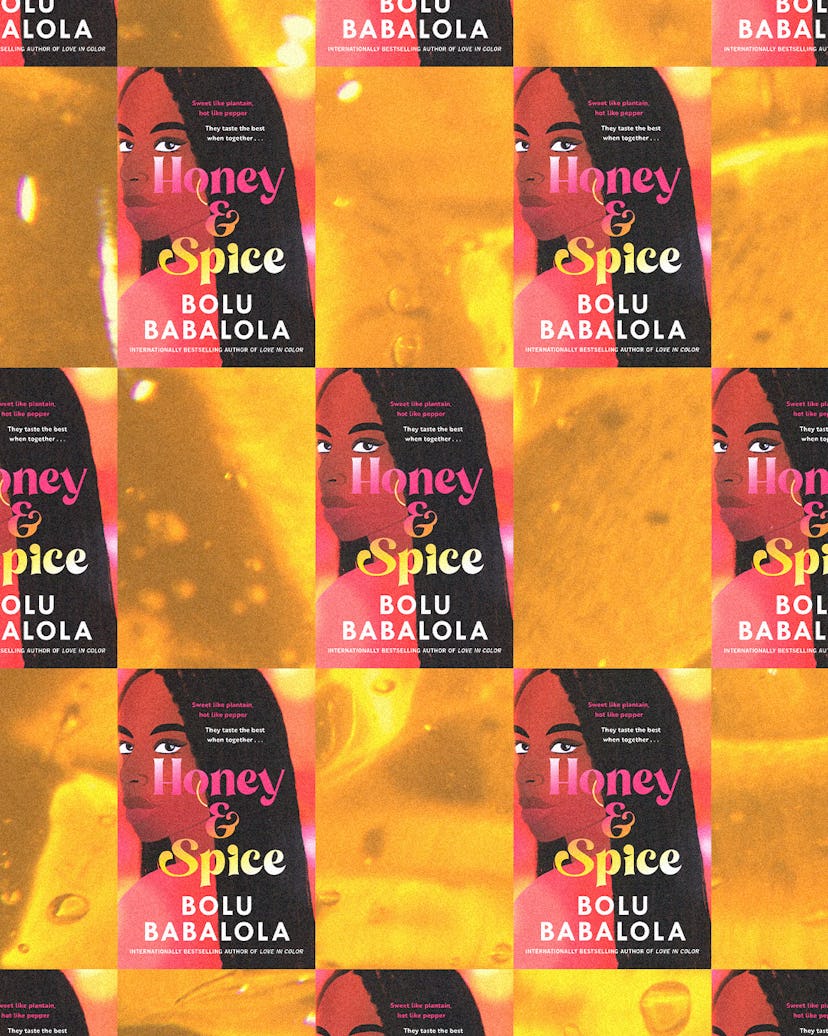Bolu Babalola is in love with love. The British-Nigerian author spent many of her teen years churning out original rom-com stories every week for her classmates to read at school. She doesn’t even remember actively choosing to write about romance, she just liked the way it made her feel: warm, giddy, hopeful. Back then, she was only beginning to identify as a romantic. Now, the London-based writer identifies as a “romcomoisseur.” She has channeled a lifetime of consuming romance books and other romantic media (like, nearly every rom-com in existence) into a successful career as a romance writer. In 2020, her debut book, “Love in Color: Mythical Tales from Around the World, Retold,” became an international bestseller; last year, she was named to Forbes’s 30 Under 30 list. Early connoisseurship helped her develop a discerning eye for what the genre gets right and wrong about love. Her romance books—by design, not default—have become outliers in the publishing industry, since they center Black women as romantic leads.
Looking back at her early school work, Babalola remembers there was embarrassingly earnest writing and cheesy titles but, also, pointedly, “there were always Black girls.” “Someone once asked me why all my female protagonists are seen as beautiful,” she recently tweeted to her 100k+ followers on Twitter. “I will always write about Black women and dark-skinned BW in particular and honestly, that is all I have to say about that.” (To quote popular TikToker Michaela Jennings, the girls that get it, get it—and the girls that don’t, don’t.) Her second book, Honey & Spice (out this July) marks her debut as a novelist. It’s being marketed as “the rom-com of the decade” and has made it onto nearly every single recommended summer reading list on the Internet.
The publishing industry’s dearth of racial diversity—from authors to their characters—is well-documented, and only now seeing a shift. That Babalola’s emergence onto the book scene came with an immediate and deliberate embrace of Black women as readers and subjects was radical—but also, for the rising romance writer, second nature. As Babalola explains, “It never occurred to me to write a character that wasn’t Black or Nigerian or dark-skinned, which is what I am.”
Hers is a capacious literary vision. In it, Black women’s needs and desires are not only met, but embraced and empathized with by someone who knows them intimately and recognizes them as complex and fully human. Love in Color was an anthology of thirteen love stories—a mix of tellings and retellings inspired by mythology from around the world that she decolonized and infused with her own particular essence. The Greek tale of Psyche and Eros is rewritten, for example, and patriarchal tropes that long-plagued the romance genre are beaten back by self-possessed Black female leads. Honey & Spice is a steamy banter-filled college romance between Kiki Banjo, host of the popular campus radio show Brown Sugar, and a proudly noncommittal new student with a dangerous “R&B smile” named Malakai.
Babalola’s writing projects are part of mission to normalize seeing Black women being loved loudly in popular media. “I try not to think about what I’m writing against,” Babalola explains, “but rather what I want to proclaim.” Her oeuvre has overarching themes of “equality, a woman having agency over her desire, and sisterhood.” Babalola’s writing philosophy is founded on a core principle. “I build the woman first,” the author shares, “and then I’m like, ‘Okay, who is the man who is worthy of her?’”
Babalola’s vision is laser-focused and she’s unwilling to let anyone dilute it. “I come from a Beyoncé school of discipline,” the author explains. “Everything that has my name on it has to have me in it.” This discipline manifests everywhere from the content of her books, with their feminist plots and proudly African character names, to the decision not to italicize Yoruba words to keep them on par with English ones, and even how her books are marketed. “I wanted it to be a dark-skinned Black woman on the cover,” she explains of Honey & Spice’s vibrant book jacket and how she had a hand in everything about Kiki’s appearance on it “down to the colors and her braids and her nose ring.”
Babalola’s perfectionism isn’t about ego, it’s about maintaining the consistency of her writing’s purpose. “We’ve been taught to make space for other people,” the author explains. “There is a power in asserting our dominance in our spaces and not apologizing for that.” Whether she is writing Black women into fantastical fairy tales or modern fake-dating scenarios, she’s doing so with a singular goal for her Black women readers: to make them feel what she felt when she first began reading romance—warm, giddy, hopeful.
